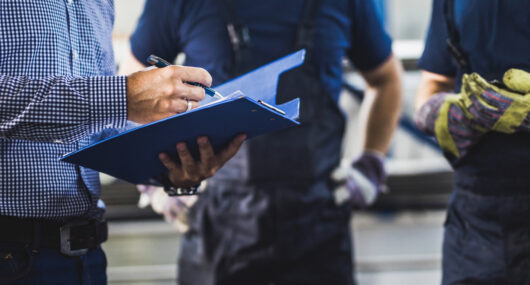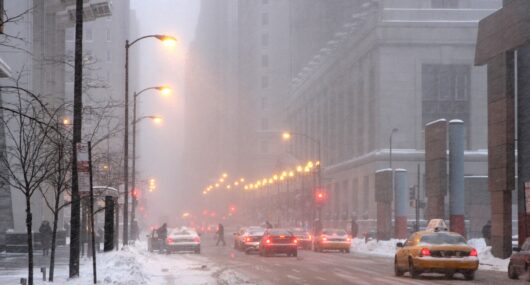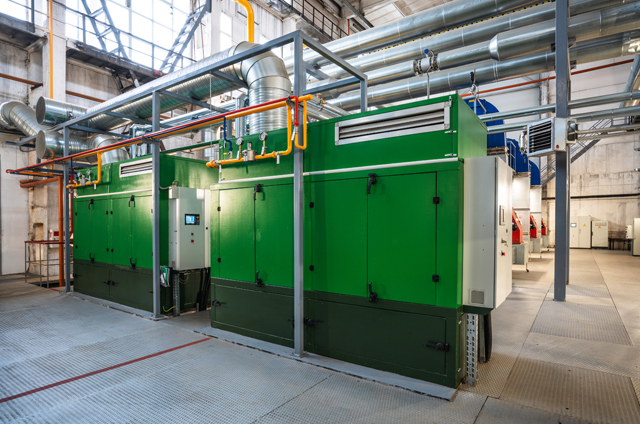
4 Tips to Keep Your Commercial Generator
Commercial generators play an important role in ensuring that your business or office continues to operate smoothly during power outages. However, the failure to install and maintain them properly can not only result in loss of productivity but also lead to deaths from carbon monoxide poisoning or injuries and burns. According to reports from the Consumer Product Safety Commission, CO poisoning is the biggest problem. The CPSC data shows that more than 900 people died of carbon monoxide poisoning from 2005 to 2017.
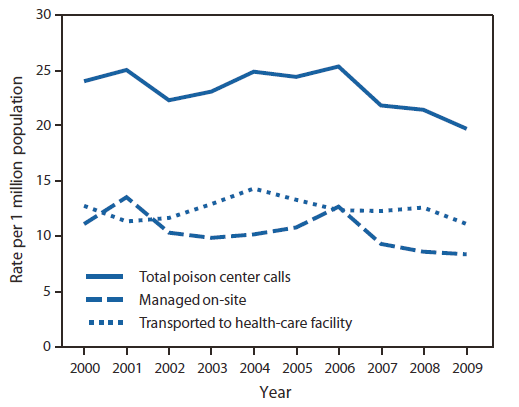
Image Source: https://www.cdc.gov/mmwr/preview/mmwrhtml/mm6030a2.htm
Carbon monoxide is a colorless, odorless gas that can be deadly in as little as five minutes if the levels are high enough, as per National Institute of Health guidelines. To avoid the catastrophic impact of CO poisoning from commercial generators, it is recommended to use products that come with built-in sensors or have lower emission levels. Another way to reduce the damaging effect of these generators is to get them installed by certified technicians and go for their regular preventive maintenance. Here are some tips that can help you keep your commercial generators safe and prevent injuries and deaths:
#1 – Do Not Keep the Generator in Enclosed Spaces
A large number of generator-related injuries and deaths are a result of CO poisoning from generators that have been placed indoors or in enclosed spaces. To avoid the collection of carbon monoxide, place the generators at least 20 feet from your office or house and ensure that its engine exhaust is directed away from windows and doors. Take the advice of expert technicians about the proper placement of the generator.
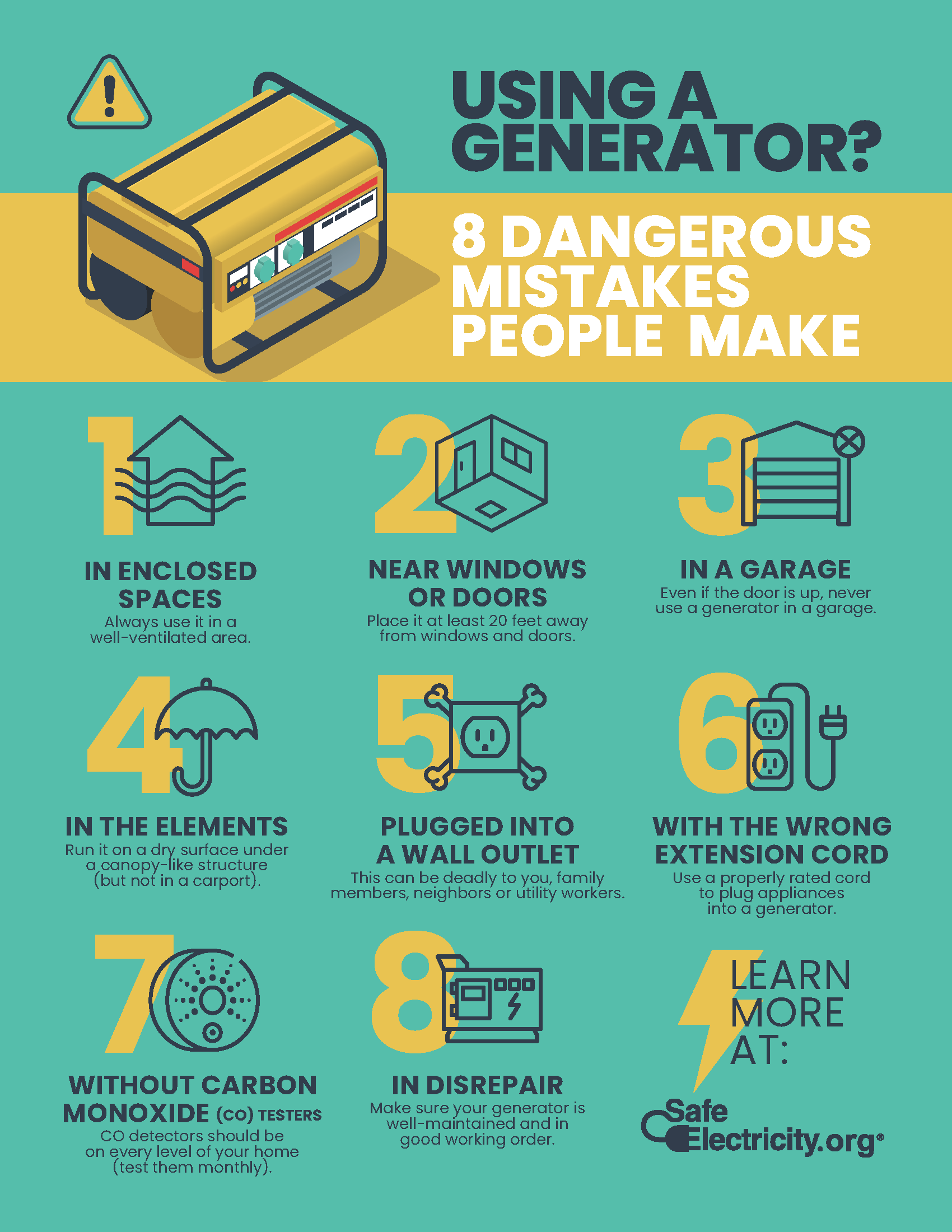
#2 – Get a Generator with In-Built Safety Technology
Many generator manufacturers include devices that detect high levels of carbon monoxide and turn off the machine beyond a certain level. The use of such generators can ward off potentially hazardous and life-threatening accidents.
#3 – Avoid Electrical Hazards
Ensure that the generator is installed properly with proper wiring and extension cords. There should also be a heavy-duty extension cord that can take the load off all connected appliances. Use the services of expert technicians who will not only ensure that the entire cord is smooth and free of cuts but check the plug quality. The plug should have three prongs to prevent shock if water gets collected inside the generator. The use of a transfer switch that connects the generator to the circuit panel will allow powering of hardwired appliances besides avoiding the risks associated with the usage of extension cords. Use transfer switches that display wattage usage levels thereby helping avoid overloading.
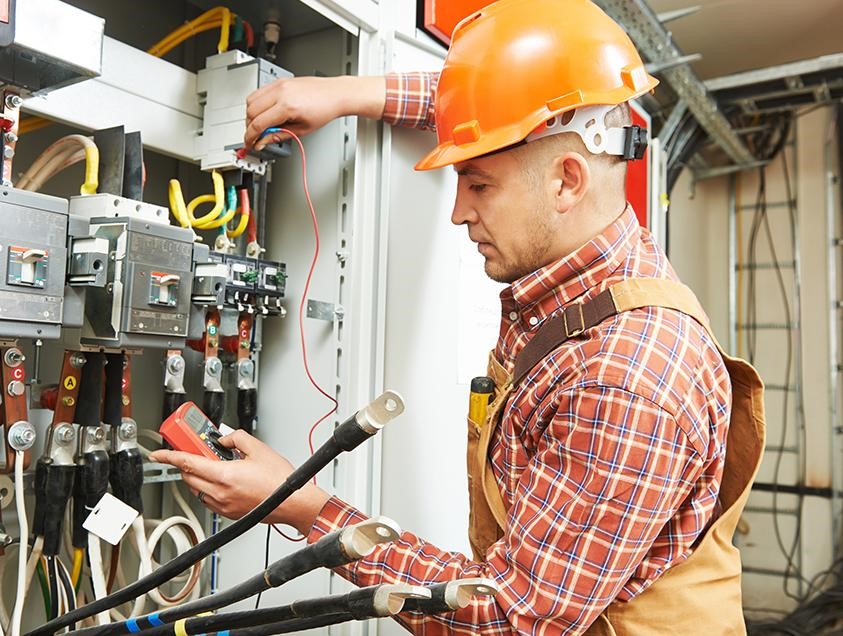
#4 – Avoid Back feeding
Another way to avoid accidents due to commercial generators is to avoid back feeding. This means that you should not power your office or home’s wiring by plugging the generator into a wall outlet. This will help in reducing the risk of electrocution to workers. When you back feed, you bypass the built-in circuit protection devices in your homes and offices and this can result in an electrical fire or damage to the electrical items.
To ensure that your commercial generators are safe and running, go for professional maintenance services. Always approach expert agencies who will take care of all aspects like checking the filters and oil levels besides ensuring that the batteries are in good condition.


